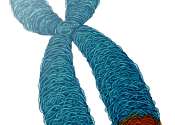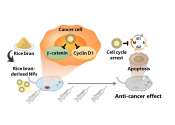New study finds potential targets at chromosome ends for degenerative disease prevention
We depend on our cells being able to divide and multiply, whether it's to replace sunburnt skin or replenish our blood supply and recover from injury. Chromosomes, which carry all of our genetic instructions, must be copied ...








